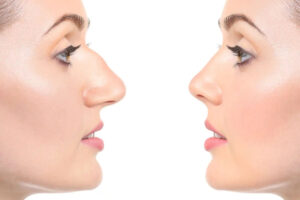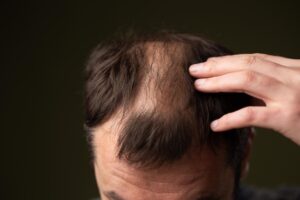If you’ve been diagnosed with sleep apnea, you’ve likely heard of the CPAP machine, the gold standard for keeping your airway open while you sleep. And while CPAP can be incredibly effective, it isn’t for everyone. Many people find it uncomfortable, noisy, or difficult to use consistently. If you’re among those who wake up tangled in tubing, deal with constant mask leaks, or can’t sleep soundly with a machine humming beside you, you’re not alone. Studies show that nearly 50% of patients stop using CPAP within the first year due to discomfort or inconvenience. However, there are effective ways to manage sleep apnea naturally, approaches that help you breathe easier, sleep more deeply, and restore your energy without depending solely on a machine. From lifestyle changes and positional therapy to oral appliances and breathing exercises, natural treatments can make a real difference in your sleep and overall well-being.
Let’s explore how to manage sleep apnea naturally, safely, and effectively.
Understanding Sleep Apnea and Why CPAP Isn’t Always Ideal
Sleep apnea is a condition where your breathing repeatedly stops and starts during sleep. The most common form, Obstructive Sleep Apnea (OSA), occurs when the muscles in your throat relax too much, narrowing or collapsing your airway. This triggers loud snoring, choking, or gasping, and even though your brain briefly wakes you to restore breathing, these constant interruptions prevent you from getting deep, restorative sleep. While CPAP (Continuous Positive Airway Pressure) therapy keeps the airway open using a steady flow of air, many patients struggle with:
- Mask discomfort or skin irritation
- Claustrophobia
- Dry mouth and nasal congestion
- Difficulty travelling with bulky equipment
- Machine noise is disturbing their partner
If you find yourself dreading bedtime because of your CPAP, it may be time to explore gentler, more natural approaches that still support your breathing, without sacrificing comfort.
-
Oral Appliance Therapy: A Natural, CPAP-Free Alternative
One of the most effective CPAP alternatives is Oral Appliance Therapy (OAT), a small, custom-made device worn in your mouth during sleep.
This mouthpiece gently shifts your lower jaw forward, keeping your airway open by preventing the tongue and throat tissues from collapsing. It’s quiet, easy to travel with, and doesn’t require electricity or tubing.
Why it works naturally:
- Maintains airway openness using your body’s natural alignment
- Enhances oxygen flow without external pressure
- Encourages deeper, more restful sleep
Benefits of Oral Appliance Therapy:
- Lightweight and portable
- Custom-fitted for maximum comfort
- Clinically proven for mild to moderate OSA
- Easier to use consistently than CPAP
If your sleep apnea is moderate or you can’t tolerate CPAP, an oral appliance designed by a sleep specialist can be a game-changer, helping you breathe freely and sleep comfortably.
-
Positional Therapy: Change How You Sleep, Change How You Breathe
Did you know that your sleep position plays a huge role in how severe your apnea symptoms are?
When you sleep on your back, gravity pulls your tongue and soft palate backwards, blocking the airway. However, sleeping on your side helps keep the airway more open, reducing both snoring and apnea events.
Natural positional therapy techniques include:
- Using a side-sleeping pillow or wedge cushion
- Wearing a positional belt that prevents rolling onto your back
- Slightly elevating your head to improve airflow
Even a small adjustment in how you sleep can lead to big improvements in breathing and energy levels.
-
Myofunctional Therapy: Train Your Muscles to Breathe Better
Sometimes, strengthening your airway muscles is the key to long-term relief. Myofunctional therapy involves tongue, throat, and facial exercises designed to tone the muscles that control your airway.
These exercises can help your airway stay firm and open during sleep, reducing the risk of collapse.
Examples include:
- Pressing your tongue against the roof of your mouth and holding for a few seconds
- Repeating vowel sounds like “A-E-I-O-U” to engage throat muscles
- Performing gentle cheek and jaw exercises
Research shows that consistent practice can reduce snoring and mild sleep apnea. It’s a completely natural and zero-cost way to improve your breathing control.
-
Weight Management and Diet: Lighten the Pressure on Your Airway
One of the most impactful natural treatments for sleep apnea is maintaining a healthy weight. Extra tissue around the neck or abdomen increases airway pressure, making it harder for air to flow freely.
Even modest weight loss, about 10% of your body weight, can significantly improve sleep apnea symptoms.
Tips for weight-friendly sleep support:
- Eat lighter dinners and avoid eating close to bedtime
- Focus on whole foods, lean proteins, and high-fibre meals
- Stay hydrated, but limit caffeine and alcohol intake
- Avoid processed and high-sodium foods that promote fluid retention
In addition to weight, meal timing plays a role. Eating late can worsen acid reflux, leading to increased throat irritation and airway blockage during sleep. Give your body at least 3 hours to digest before bedtime to make breathing easier.
-
Improve Sleep Hygiene and Routine
Poor sleep habits can worsen apnea symptoms. Consistency and relaxation are key to managing your sleep apnea naturally.
Better sleep hygiene practices include:
- Going to bed and waking up at the same time every day
- Avoiding screens at least one hour before bed
- Keeping your room cool, dark, and quiet
- Using blackout curtains or a white noise machine
- Limiting caffeine, alcohol, and heavy meals before bedtime
Building a nightly wind-down routine, such as reading, stretching, or meditation, helps your body recognise when it’s time to rest, supporting deeper, uninterrupted sleep.
-
Manage Nasal Congestion and Breathing Blockages
Sometimes, sleep apnea worsens simply because of nasal obstruction, allergies, sinus infections, or deviated septum issues can make breathing difficult.
Simple, natural solutions include:
- Using saline nasal sprays or rinses before bed
- Try nasal dilator strips or cones to open the nasal passages
- Running a humidifier to prevent dryness and irritation
- Avoiding allergens like dust or pet dander in the bedroom
When your nasal passages are clear, airflow improves, and your body is better able to maintain steady breathing during sleep.
-
Relaxation and Breathing Exercises
Practising deep breathing techniques before bed helps calm your nervous system, slow your heart rate, and promote better oxygen flow.
Try this before sleep:
- Inhale slowly through your nose for 4 seconds
- Hold your breath for 7 seconds
- Exhale through your mouth for 8 seconds
- Repeat for 5–10 cycles
This “4-7-8 technique” activates your body’s relaxation response, preparing your airway muscles and mind for restful sleep.
Yoga and meditation are also powerful tools for reducing stress, a major contributor to nighttime breathing disruptions.
-
The Power of Consistency
Natural remedies take time and dedication, but the benefits are long-lasting. Combining multiple strategies, such as improving your diet, adjusting your sleep position, using an oral appliance, and maintaining good sleep hygiene, offers the best results. Unlike mechanical solutions, these approaches work with your body, strengthening your natural breathing patterns over time.
Discover Advanced Sleep Apnea Treatment Devices
Living with sleep apnea doesn’t have to mean living with a noisy machine. Today, you have more options than ever to treat sleep apnea naturally and comfortably, from strengthening your airway muscles to using customized oral appliances designed to support healthy breathing. At Midwest Sleep REMedies, we specialise in helping patients breathe easier without relying on CPAP. Our clinic provides custom-fit oral appliances, small, comfortable, and travel-friendly devices designed to keep your airway open naturally while you sleep. We proudly serve patients across Missouri and Kansas, offering expert evaluations, digital impressions, and ongoing care tailored to your comfort and needs.
If you’re ready to sleep better, breathe easier, and wake up refreshed, it’s time to discover advanced sleep apnea treatment devices at Midwest Sleep REMedies. Better sleep shouldn’t come at the cost of compromise.

